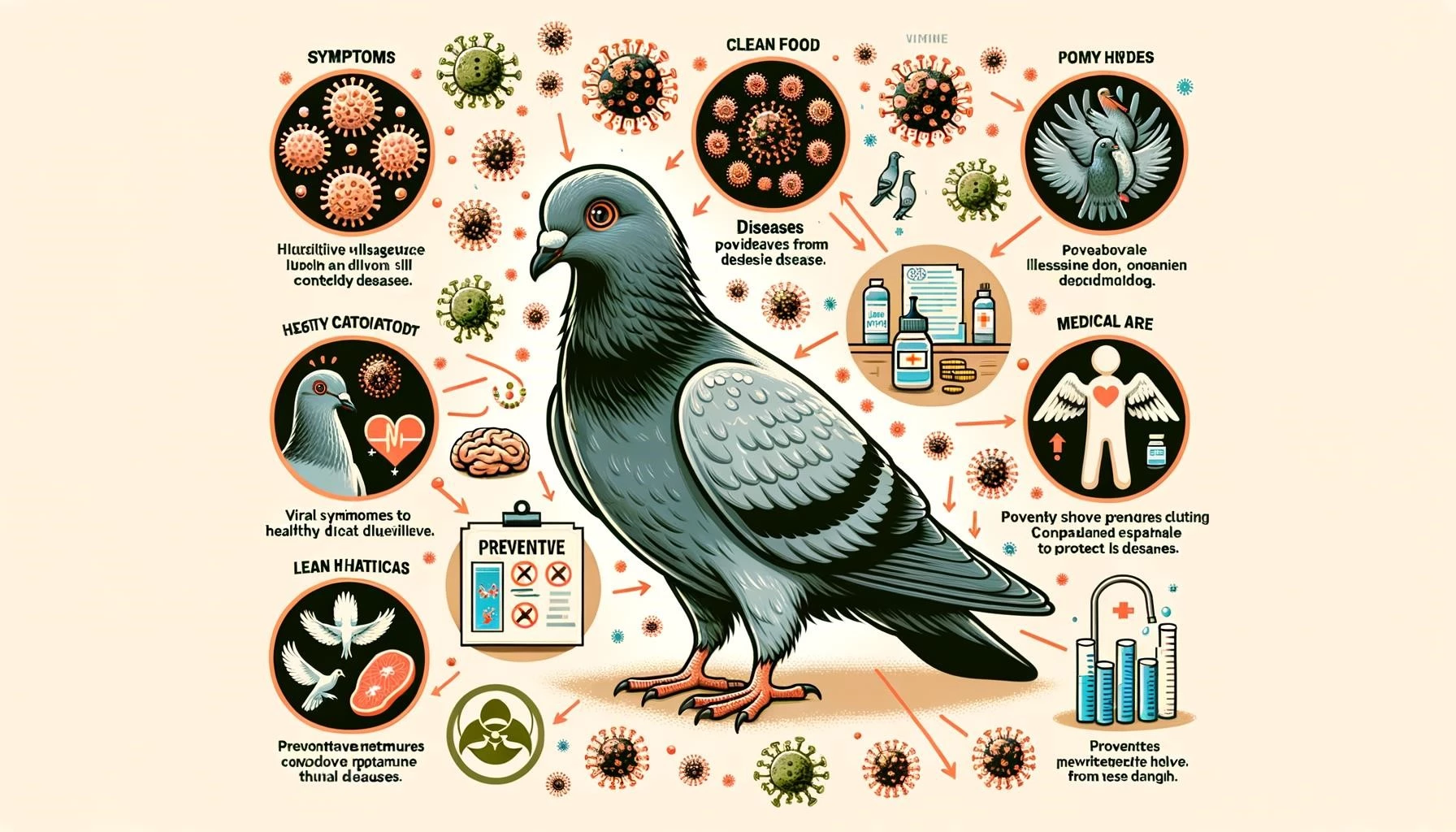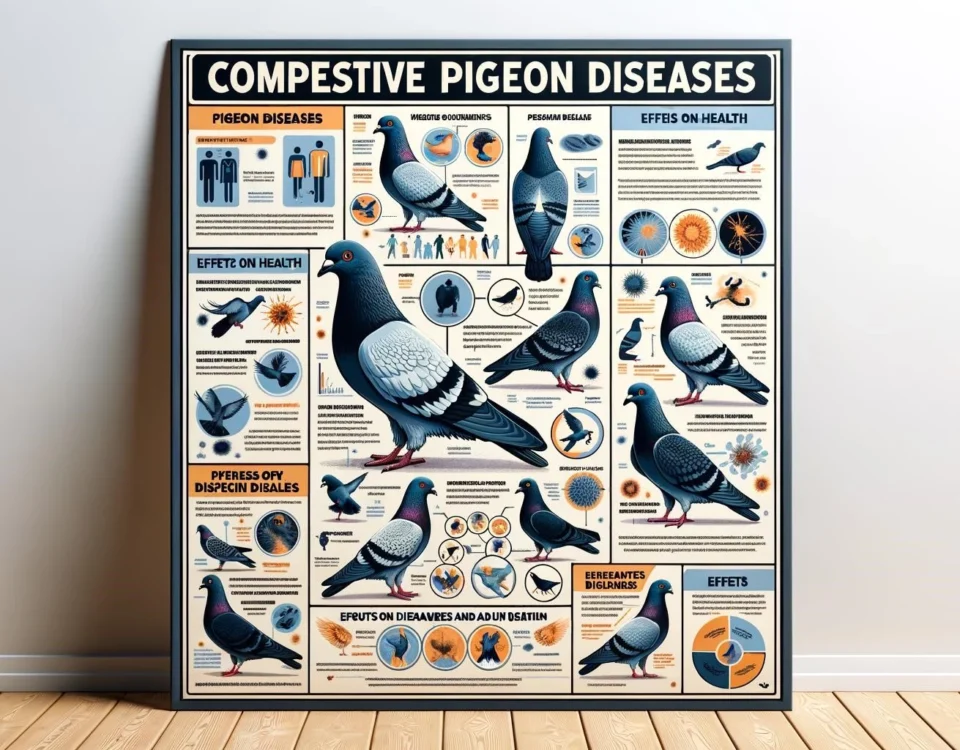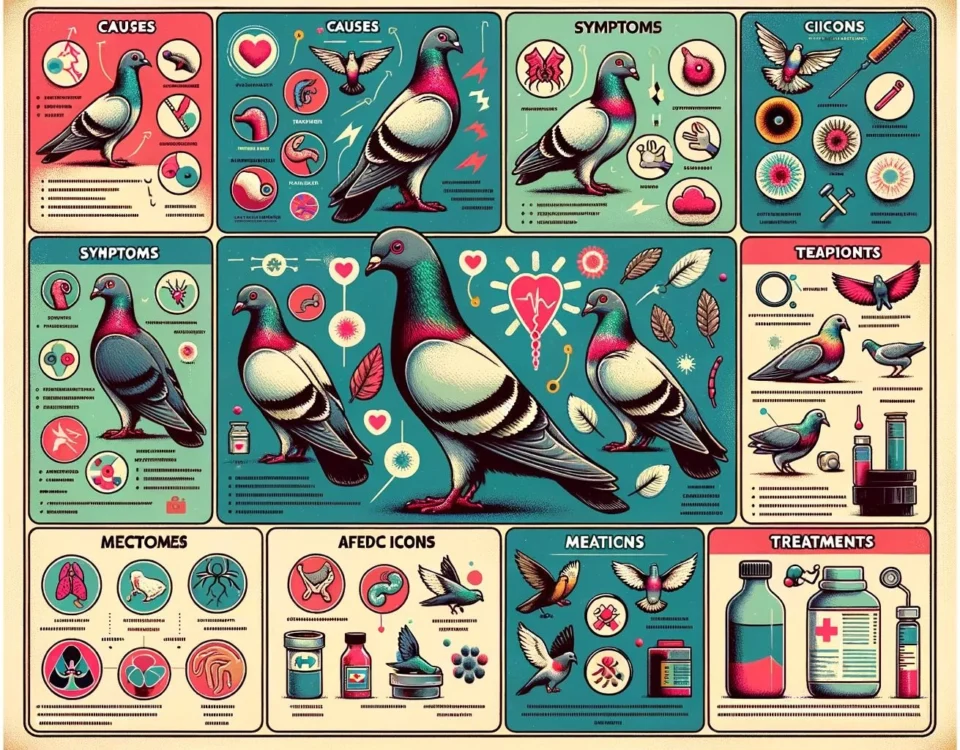Viral diseases are a significant concern in pigeon populations worldwide. These diseases can cause severe illness and even death in affected birds. Understanding the different types of viral diseases that can affect pigeons is crucial for effective prevention and management.
Key Takeaways
- Pigeons can be affected by various viral diseases, including Mycoplasma, paramyxovirus 1, adenovirus, rotavirus, herpesvirus 1, and circovirus infections.
- Viral diseases in pigeons can lead to common clinical signs and affect different target tissues.
- Preventive measures such as good maintenance practices, isolation of sick birds, and proper vaccination can help control viral diseases in pigeon flocks.
Mycoplasma
Mycoplasma infections in pigeons can cause respiratory problems and lead to chronic respiratory disease (CRD). Common symptoms of CRD include coughing, sneezing, nasal discharge, and decreased appetite. Mycoplasma can be transmitted from infected pigeons to healthy ones through respiratory droplets and contaminated surfaces. Proper hygiene and biosecurity measures can help prevent the spread of Mycoplasma in pigeon flocks.
Paramyxovirus 1
Avian paramyxovirus type 1 (APMV-1) is a highly contagious and deadly viral infection that affects pigeons. The disease caused by APMV-1 in pigeons is commonly known as pigeon paramyxovirus (PMV). PMV can spread rapidly and cause high rates of illness and mortality in pigeon populations. Infected birds may show symptoms such as respiratory distress, neurological signs, tremors, and sudden death. Vaccination is an essential preventive measure against PMV in pigeons.
Circovirus
Pigeon circovirus is another viral infection that can affect pigeons. Circovirus infections are characterized by weight loss, immune suppression, and gastrointestinal disorders in pigeons. Infected birds may exhibit symptoms such as diarrhea, decreased activity, and poor feather quality. Circovirus can be transmitted through direct contact with infected birds or their bodily fluids. Good hygiene practices and regular health screenings can help prevent the spread of circovirus in pigeon flocks.
In addition to Mycoplasma, paramyxovirus 1, and circovirus, other viral diseases that can affect pigeons include adenovirus, rotavirus, and herpesvirus 1. These viral infections can cause various clinical signs and target different tissues in pigeons. Proper preventive measures, such as maintaining good hygiene, providing a clean environment, and implementing vaccination protocols, are crucial for managing and preventing viral diseases in pigeon populations.









